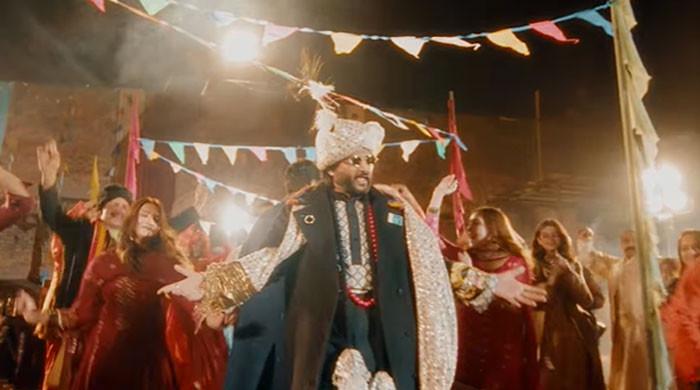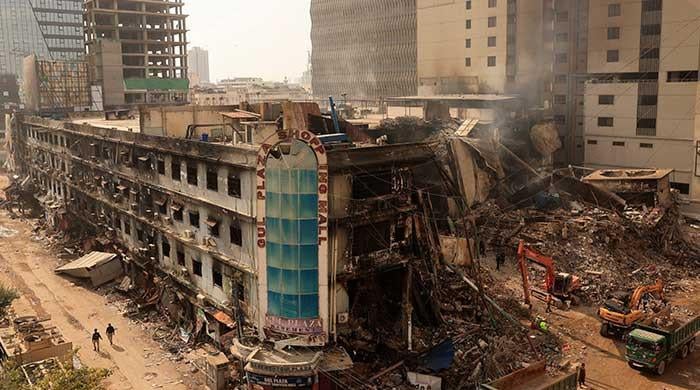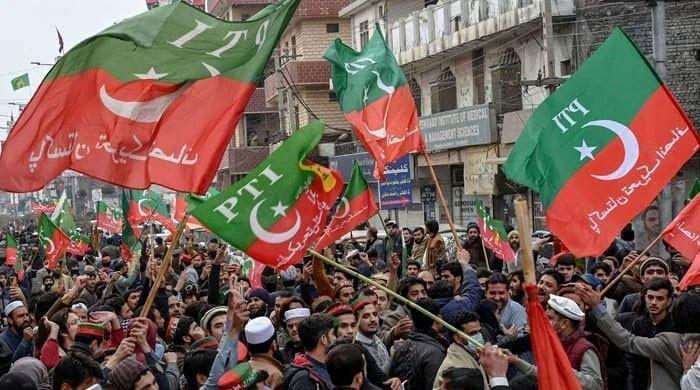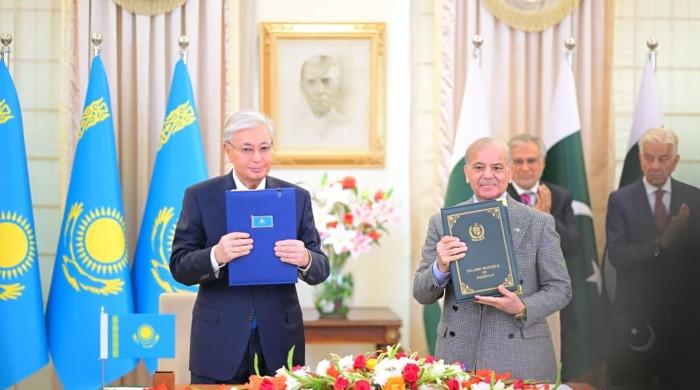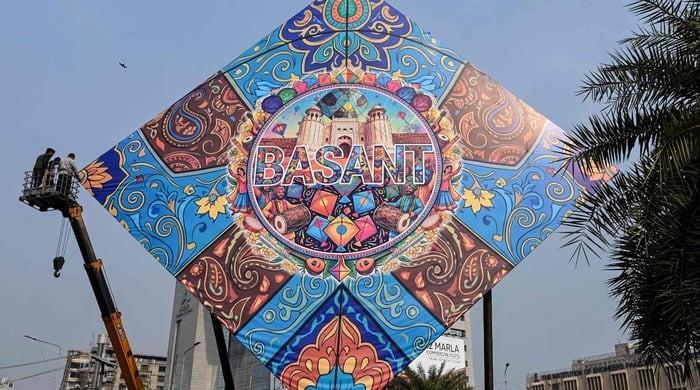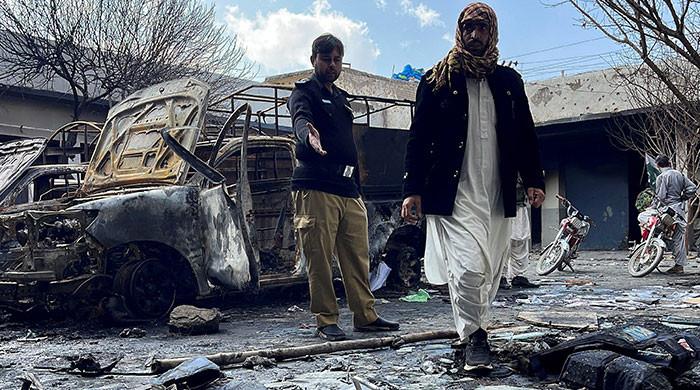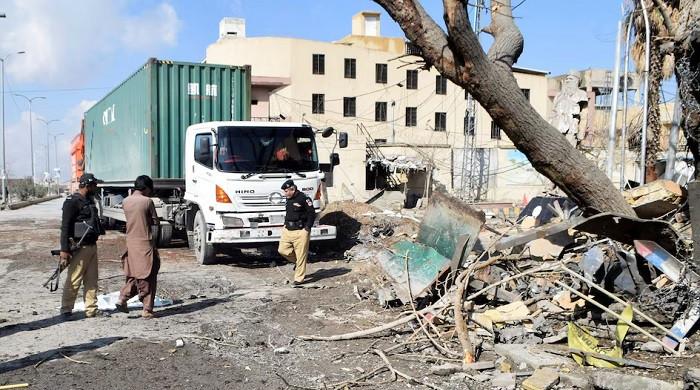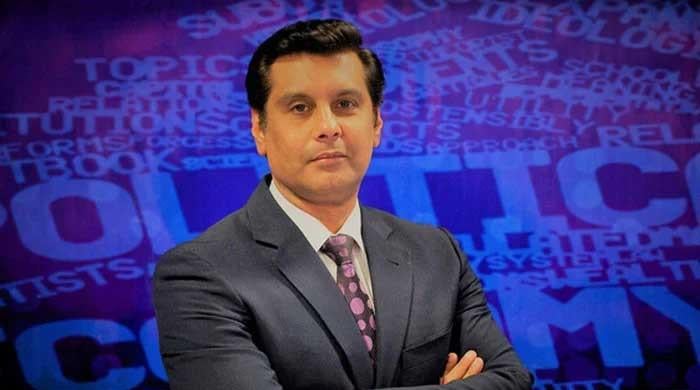Islamabad High Court bans corporal punishment in capital city
The court has ordered the federal government to submit its response to a petition against corporal punishment by March 5
February 13, 2020
The Islamabad High Court (IHC) on Thursday ordered a complete ban on corporal punishment in educational institutions operating in the federal capital territory.
The IHC issued the order while hearing a petition filed by singer-turned-activist Shehzad Roy, who is seeking a permanent ban on corporal punishment.
During the hearing, Roy, through his lawyer, informed the court that a child had passed away in Lahore due to corporal punishment.
He called on the court to abolish Section 89 of the Pakistan Penal Code (PPC), which allows parents, guardians and teachers to use corporal punishment in "good faith” and protects them from the consequences of administering corporal punishment.
IHC Chief Justice Athar Minallah, who was presiding over the case, remarked that Parliament had also been working on a bill on corporal punishment.
Also read: Student tortured by teacher in Bahawalnagar, suffers injuries to head, eye
"We want the use of corporal punishment banned while Parliament goes about enacting laws on the matter," Roy's lawyer requested the court.
Justice Minallah subsequently suspended Section 89 of the PPC in the federal capital territory and ordered the government to submit its reply to the petition by March 5.
Roy welcomes IHC's order
In a conversation with Geo Pakistan, Roy hailed the order and thanked the court for enforcing a temporary ban on the matter till the case is heard.
The rights activist explained that a teacher is legally allowed to hit children “in good faith”.
“Under the law, if a child dies due to such violence, it will not be considered murder,” stated Roy.
He shared that, due to this law, a teacher who uses violence against children avoids punishment as he says “he acted in good faith”.
Also read: Celebrities push for solutions to prevent child sexual abuse in light of Farishta case
When asked about the state of child protection laws in the provinces, Roy shared that only Sindh had a law in this regard, while other provinces are yet to enact legislation on this matter.
“In Punjab, KP (Khyber Pakhtunkhwa) and Balochistan, this has been stopped through court orders; but the provinces [themselves] have not passed any law,” said Roy.
Roy also shared that research conducted at Harvard University had pointed out that if a “young child is beaten, the same section of the brain is affected as when the child suffers sexual abuse”
What is Section 89 of the PPC?
“Act done in good faith for benefit of a child or insane person, by or by consent of guardian:
Nothing which is done in good faith for the benefit of a person under twelve years of age, or of unsound mind, by or by consent, either express or implied, of the guardian or other person having lawful charge of that person, is an offence by reason of any harm which it may cause, or be intended by the doer to cause or be known by the doer to be likely to cause to that person,” stated the law.
However, the law states that there are four provisions in this case.
“First: That this exception shall not extend to the intentional causing of death, or to the attempting to cause death;
Secondly: That this exception shall not extend to the doing of anything which the person doing it knows to be likely to cause death, for any purpose other than the preventing of death or grievous hurt; or the curing of any grievous disease or infirmity;
Thirdly: That this exception shall not extend to the voluntary causing of grievous hurt, or to the attempting to cause grievous hurt, unless it be for the purpose of preventing death or grievous hurt, or the curing of any grievous disease or infirmity;
Fourthly: That this exception shall not extend to the abetment of any offence, to the committing of which offence it would not extend,” read the provisions.




